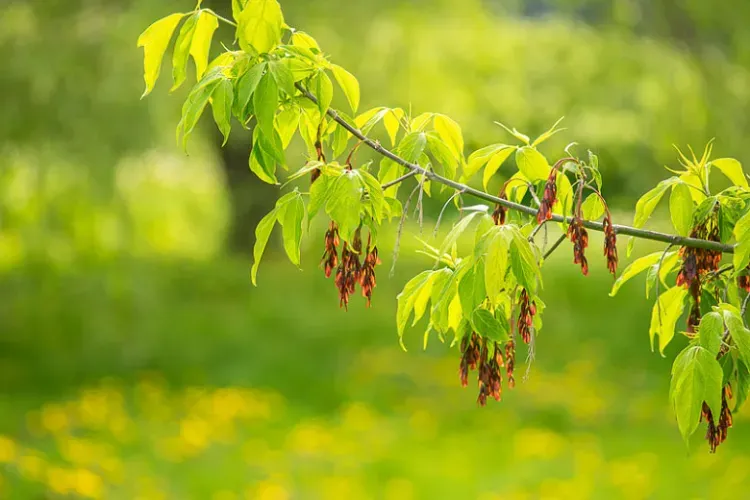
The North American box elder tree contains the deadly toxin Hypoglycin A. This toxin is also found in the European sycamore which also grows in North America and causes Atypical Myopathy in the horse population.
Box elder poisoning is called Seasonal Pasture Myopathy (SPM). It is as deadly as sycamore poisoning. More horses are affected by SPM in the autumn after the keys have dropped from the trees but not all horses will eat the seeds. Some horses eat the seeds with no effect.
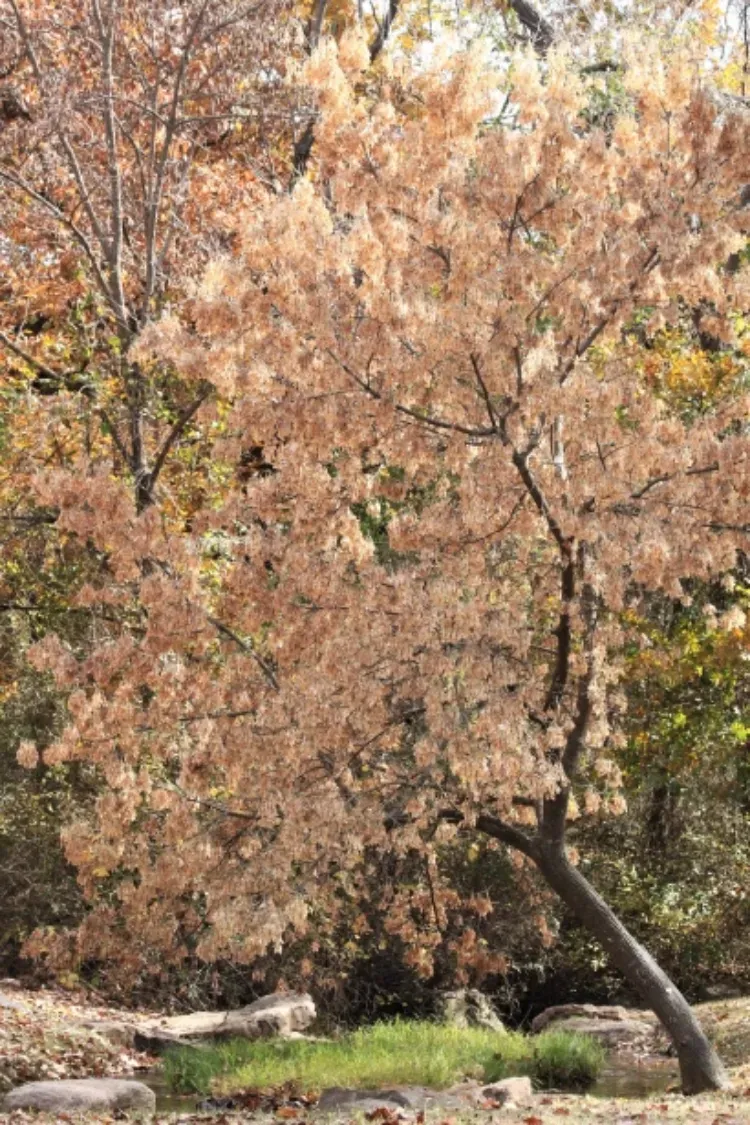
Box Elder in Autumn
This is a box elder in the Autumn fall. At this time of year, hungry horses on poor grazing are likely to eat box elder seeds and develop SPM.
Only female trees develop seeds. However, horses also develop SPM by eating box elder saps and seedlings in spring and summer.
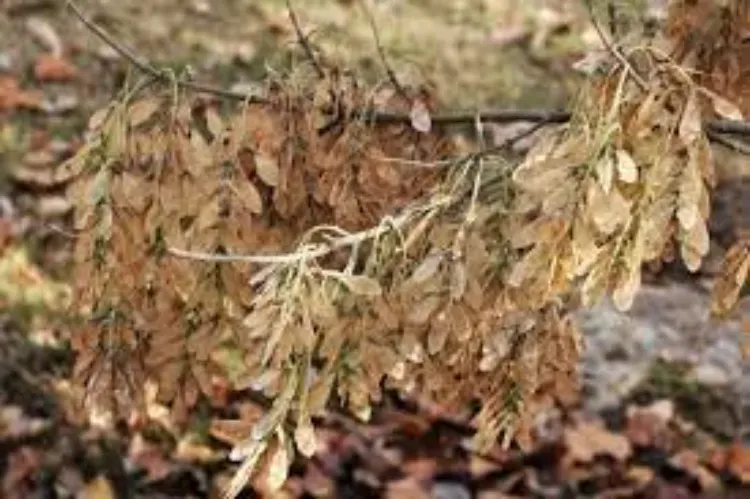
To make things worse an abundance of seeds fall from the female box elder trees in the Autumn.
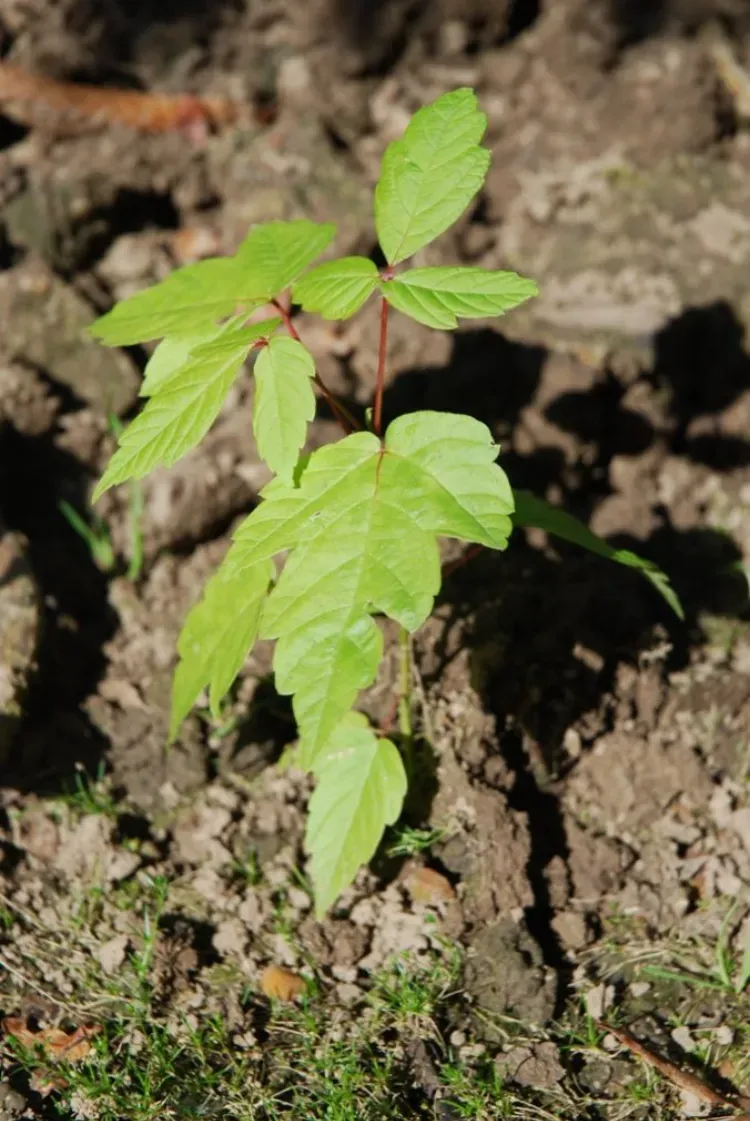
If this is not enough, young box elder seedlings contain the toxin.
So it is risky to graze horses where there are box elder trees. Nevertheless, some horses will survive box elder poisoning with prompt equine hospitalisation and round-the-clock nursing.
1. Horses with the Greatest Risk of Developing SPM
- Hungry horses on inadequate grazing and in poor condition
- Overweight horses put on poor grazing to restrict their calorie intake
- Good keepers who are kept slim by being turned out on poor grazing
- Horses under the age of 4 years
2. Horses at Less Risk of Developing SPM
- Horses turned out on good grass
- Those on poor grazing but supplied with hay
- Horses who are at least 4 years old
- Horses who spend less time on grass and are well-fed when stabled
Strategies for Horses on Pastures where there are Box ElderTrees
The toxin risk to horses is controllable:
- In the Autumn keep removing seeds and leaves from your pastures
- Maintain good pastures and avoid overgrazing
- Keep your horses in good condition with access to hay if the grazing is not adequate
- Make sure horses have low worm counts
- Feed supplementary hay well away from the box elder trees
- Do not let horses under the age of 4 years graze around box elder trees
- Restrict turn out in the Autumn to less than 6 hours a day.
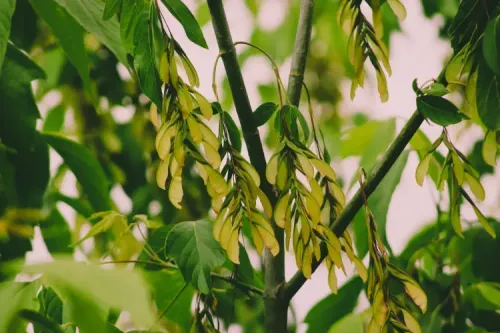
Article Suggestion
Act Now – Horse Poisoned by Sycamore and Box Elder Trees
